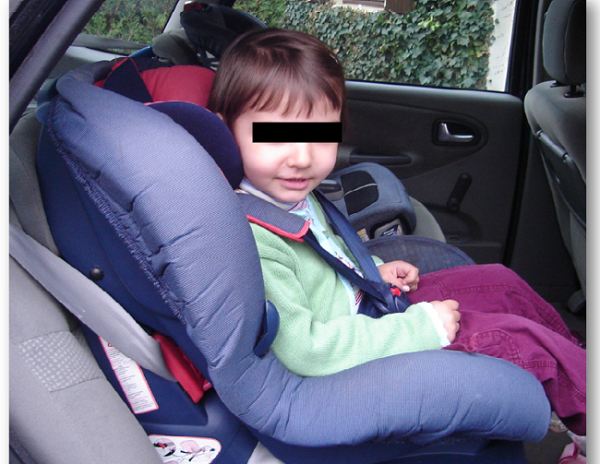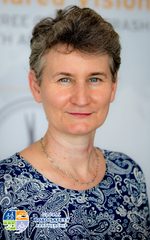
INJURY PREVENTION SESSIONS - A Step to Preventing Child Injuries in Road Traffic Crashes through the use of Child Restraint Systems

Road traffic injuries are the leading cause of death for young people aged 5-29 years globally. The horrific impact of road trauma on children is an ongoing global crisis that has a continuous impact on families around the world and has been recognised as a key issue to be addressed within the new global plan of action for the second decade of action for road safety 2021 – 2030, and as part of realising the targets outlined in the Sustainable Development Goals (SDG), which call for a 50% reduction in road crash deaths by 2030.
Child Restraint Systems are an evidence-based, globally recognised tool that can lead to significant injury prevention resulting from road crashes. However, the global data shows that they are not adopted at a wide scale, particularly in low- and middle-income countries.
This session focuses on key strategies and specific interventions that have been enacted to encourage the use of child restraint systems. It outlines the injury prevention impact of the systems and how the global road safety targets can provide impetus for change. It also provides a specific case study from the Philippines, where a combination of interventions led to the passage of a new mandatory child restraint law, and references a new technical guide developed by the Global Road Safety Partnership, which provides practical advice and steps to assist the introduction of child restraint systems into a country.
The session recording is available here:
The 'Injury Prevention Sessions' are action-focused conversations about how we learn from local solutions to address the global problem of injury. From practitioners to researchers to students, this informal forum brings together like-minded individuals to explore innovative injury prevention research methodologies and opportunities to work together to save lives globally. This webinar series is co-hosted by UNSW School of Population Health and the WHO Collaborating Centre on Injury Prevention and Trauma Care at The George Institute for Global Health.
By registering to attend this event, you agree that The George Institute and UNSW's School of Population Health may send you information in the future about our work. You can opt out at any time. We look forward to you joining us for this webinar and on social media with @georgeinstitute @UNSWMedicine and #InjuryPrevention
Speakers
Dr Judy Fleiter
Judy has studied, worked and conducted research in the field of road safety for more than twenty years. In 2016 she joined the Global Road Safety Partnership (GRSP) in the role of Global Manager. Judy oversees a global programme of road safety capacity building work across Asia, Latin America, and Africa. Her responsibilities include managing a Road Policing Capacity Building Program, a Road Safety Advocacy Grants Program, and developing and delivering a range of leadership courses with Johns Hopkins University colleagues.
Judy holds a PhD in Psychology with a focus on road user behaviour. Prior to joining GRSP, she worked in an Australian University-based road safety research centre for 15 years. During that time, she completed a 4-year Postdoctoral Fellowship that saw her based at one of China’s largest police training facilities for 2 years as part of a research programme examining factors influencing speeding behaviour.
She is regularly called upon to provide technical expertise and guidance to road safety initiatives in low- and middle-income countries and has authored numerous global road safety documents, peer-reviewed articles, book chapters and technical reports.

Blaise Murphet
Blaise is the Asia Pacific Consultant for the Global Road Safety Partnership (GRSP). He was previously the Asia Pacific Program Manager for the GRSP, based in Kuala Lumpur, Malaysia, and a Senior Officer, based in Geneva, Switzerland. As part of these roles, he coordinated road safety activities in 10 countries in the Asia Pacific region. Blaise has worked with governments, development banks and non-governmental partners to build capacity on the use of strategic communications and media advocacy in road safety and leads coordination of the Global Road Safety Leadership Course with GRSP and Johns Hopkins University.
Blaise is also a road safety communications specialist consultant with the Asian Development Bank (ADB), including coordination of the Road Safety Capacity Building Programme delivered by the Asia Pacific Road Safety Observatory (APRSO) and he also manages road safety education programs for the Transport Accident Commission (TAC) in Victoria, Australia.

Michael Griffiths
Michael is a Global Road Safety Partnership consultant and has extensive research and field experience in mechanical and biomedical engineering and held the position of Principal Research Scientist, Head of the Engineering and Medical Section of the New South Wales government’s Traffic Accident Research Unit. This position included responsibility for the management of Crashlab, which went on to conduct most of the development work on CRS Standards and CRS Consumer programmes in Australia. He was foundation member of the ISO/22/36 Working Group 2 on Child Restraint Systems which developed ECE R44 and ECE R129 and continues as a long-term member of the Australian Standards Committee on Child Restraint Systems. He initiated and implemented the concept of restraint fitting stations and the Australian consumer program CREP which compares the safety of CRS. He was also a member of France’s “International Task Force on CRS”, and a member of the Advisory Board of Children Hospital of Philadelphia’s “Partners” study of CRS performance in the USA.

Daphne Marcelo
Daphne is an advocate for evidence-based policy solutions to public health issues. She obtained her Juris Doctor degree from the Ateneo de Manila University School of Law in 2017 and was admitted to the Philippine Bar in 2018. After a short stint in litigation and corporate law with a private firm, she joined ImagineLaw and began her career in development work to effect lasting social change through public health policy.
She currently leads ImagineLaw’s road safety project under the Global Road Safety Partnership Road Safety Grants Programme. Through this project, Daphne provides critical technical and legal support to national and local policymakers to reduce motor vehicle speeds through classifying roads and setting speed limits, and assists the government in implementing their national law on child restraint systems. Daphne also manages ImagineLaw’s child road traffic injury prevention project with support from UNICEF, providing support to a national and local coalition with multi-sectoral collaborations for child road safety.


